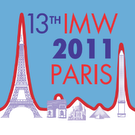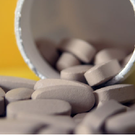Articles tagged with: Meeting Update
NewsFlash »
Millennium And Takeda Apply For FDA Approval Of Subcutaneous Velcade – Millennium and Takeda, the companies that market Velcade, have submitted an application to the Food and Drug Administration (FDA) for approval of Velcade (bortezomib) to be administered subcutaneously (injected into the fat just below the skin). Currently, Velcade is approved to be administered intravenously. Recent results have shown that subcutaneous Velcade is as effective as IV Velcade, but subcutaneous administration reduces the frequency and seriousness of side effects. In particular, the rate of peripheral neuropathy (pain and tingling in the extremities) dropped from 16 percent to 6 percent. Additionally, many patients may consider subcutaneous injections more convenient because they can be administered from home. For more information, see the Millennium press release or the Beacon’s coverage of the results comparing the efficacy and side effects of the two routes of administration.
Highlights From The 13th International Myeloma Workshop – The 13th International Myeloma Workshop will be held in Paris tomorrow through Friday. Staff from The Myeloma Beacon will be attending and reporting live from the meeting. The Beacon’s coverage will include brief “as it happens” summaries of presentations to be posted to the Beacon forums as well as daily update articles that summarize the day’s events and key presentations. Discussion threads have been created in the forums for each day of the meeting (Day 1, Day 2, Day 3, and Day 4). All Beacon readers are welcome to participate in the discussions. The Beacon’s coverage of the Workshop is made possible in part by financial support from the Tackle Cancer Foundation.
After the conclusion of the Workshop, the Multiple Myeloma Research Foundation (MMRF) will sponsor a teleconference for patients and caregivers in which myeloma specialists will present highlights from the meeting. Dr. Thierry Facon from the University of Lille in France as well as Dr. Paul Richardson from the Dana-Farber Cancer Institute will present the latest advances in myeloma treatment. Their presentation will be followed by a question and answer session. The call will take place on May 6 from noon till 1 p.m. Eastern time. For more information or to register, see the MMRF event website.
Multiple Myeloma Education Programs – Two educational programs for multiple myeloma patients will be held on May 14. Dr. Jeff Wolf will speak at the event held in San Jose, CA, and Dr. Ronjay Rakkit will speak at the event in Houston. The physicians will also answer patients’ questions. In addition, a multiple myeloma patient will speak at each program. Attendees can also connect with others at the event who have been affected by myeloma. Both events are sponsored by Millennium. For more information, see the Beacon event descriptions (San Jose, Houston). To register, call 1-866-508-6181.
News»

The 13th International Myeloma Workshop will take place Tuesday, May 3, through Friday, May 6, in Paris. During the four-day meeting, multiple myeloma specialists from all over the world will discuss the current understanding of the biology and treatment of myeloma.
Additionally, much awaited data about the safety and effectiveness of Revlimid (lenalidomide) maintenance therapy will be presented at the meeting.
The Myeloma Beacon will be covering the event, so readers can expect many articles during the meeting and in the weeks afterward about the key myeloma findings.
The International Myeloma …
NewsFlash »
Opinion: Stem Cell Collection And Hyperbaric Oxygen Treatment – In the latest article published in the opinion section of The Beacon, Lori Puente, whose husband is a multiple myeloma patient, wrote about her husband’s use of hyperbaric oxygen treatment to improve his number of stem cells available for collection. Lori’s husband Dave received extensive radiation for his bone damage. After being told that the radiation would likely severely hinder Dave’s ability to collect enough stem cells, Lori and Dave learned that hyperbaric oxygen treatment might increase the number of stem cells available for collection. Lori describes in her article how Dave underwent hyperbaric oxygen treatment and successfully collected enough stem cells for 11 transplants. To receive a copy of all opinion articles when they are published or if you are interested in contributing an opinion piece, send an email to .
The Beacon’s ASH 2010 Coverage Is Now Completed – As of yesterday, The Beacon completed its comprehensive coverage of the 2010 American Society of Hematology (ASH) meeting, including more than 20 articles with daily updates from the meeting and in-depth summaries of key myeloma-related presentations. Discussions about presentations from each day of the conference can also be found in the Beacon Forums (Day 1, Day 2, Day 3, and Day 4).
SNS01-T Receives Orphan Drug Status For Multiple Myeloma – On January 3, Senesco Technologies announced that the U.S. Food and Drug Administration (FDA) granted the company’s lead therapeutic candidate, SNS01-T, orphan drug status for the treatment of multiple myeloma. The FDA uses the orphan drug designation to promote the development of new treatments for diseases that affect fewer than 200,000 individuals in the United States. The orphan drug status provides the company with multiple benefits, including funding for clinical trials, accelerated FDA approval, and marketing exclusivity for up to seven years. Senesco plans to begin clinical trials with SNS01-T later this year. For more information, please see the Senesco press release.
Epizyme Receives $1 Million From MMRF And $20 Million From GSK For Research That May Benefit Myeloma Patients – The Boston-area biotech company Epizyme recently announced $21 million in funding for the research of histone methyltransferase (HMT) inhibitors. Epizyme’s research targets HMT proteins that regulate the on/off switch for genes, many of which are associated with multiple myeloma and other cancers. The Multiple Myeloma Research Foundation (MMRF) awarded $1 million in funding to Epizyme for its development of innovative myeloma treatments. Epizyme will also receive $20 million plus additional milestone payments in a deal with GlaxoSmithKline (GSK) for the discovery and development of Epizyme’s HMT inhibitors. Epizyme will be responsible for all research activities up to the selection of a development candidate for each target HMT. From that stage, GSK will control all further development and marketing activities. For more information, please see the MMRF and Epizyme press releases.
News»

Results of a recent study show that multiple myeloma patients who were initially treated with either thalidomide or Revlimid demonstrated strong responses to treatment with Revlimid and pomalidomide following relapse. In particular, researchers observed the highest response rates in patients who received treatment with pomalidomide.
Dr. Sumit Madan of Mayo Clinic in Rochester, Minnesota, presented the study results at the American Society of Hematology annual meeting in Orlando last month.
Research has previously shown that thalidomide (Thalomid) and Revlimid (lenalidomide), which belong to the same class of drugs …
News»

According to the results of a Phase 1/2 clinical trial, Torisel in combination with Velcade was well tolerated and effective for the treatment of relapsed/refractory multiple myeloma.
Dr. Irene Ghobrial of the Dana-Farber Cancer Institute presented the results at the 2010 annual American Society of Hematology (ASH) conference held in Orlando last month.
Dr. Ghobrial said the trial results were promising in heavily pretreated myeloma patients and that the combination of Torisel (temsirolimus) and Velcade (bortezomib) warrants further evaluation.
Torisel is marketed by Pfizer and is currently approved for the …
NewsFlash »
Celgene Seeks Expanded Approval For Revlimid In Europe – The pharmaceutical company Celgene announced on Tuesday that it is seeking expanded approval for Revlimid (lenalidomide) as treatment for multiple myeloma in Europe. The European Medicines Agency (EMA) will review approval of Revlimid for maintenance therapy of newly diagnosed myeloma patients who have not progressed after initial therapy with melphalan (Alkeran), prednisone, and Revlimid or after autologous stem cell transplantation. Currently, Revlimid is approved in combination with dexamethasone for the treatment of patients who have received at least one prior therapy. For more information, please see the Celgene press release.
ENMD-2076 Is Safe In Relapsed/Refractory Multiple Myeloma (ASH 2010) – The investigational drug ENMD-2076, which is being developed by the pharmaceutical company EntreMed, is safe in relapsed / refractory multiple myeloma patients, according to the interim Phase 1 trial results presented at the 2010 Meeting of the American Society of Hematology (ASH). Researchers tested four different dose levels (150 mg to 400 mg) in 28-day cycles. They observed progression of disease for all patients receiving the minimum dose of 150 mg. Patients receiving a dose of 300 mg achieved stable disease with reductions in serum M-protein. Researchers did not observe any dose-limiting side effects. Most side effects were mild to moderate and included nausea, diarrhea, and fatigue. The optimal dosage has not yet been determined as the trial is still ongoing. For more information, please see abstract 1957 on the ASH annual meeting website and the clinical trial description.
Daratumumab Emerges As Potential Treatment In CD38-Positive Multiple Myeloma – Preclinical results showed that the experimental drug daratumumab is highly effective at killing cancerous cells that produce the CD38 molecule. The Danish biotechnology company Genmab is currently developing daratumumab for treatment of CD38-positive multiple myeloma tumors. Researchers initially tested a broad array of CD38 antibodies against more than 10 primary tumors from myeloma patients, and daratumumab was found to be the most effective at executing the immune system killing mechanisms. Genmab is currently conducting a Phase 1/2 study to determine the safety and optimal dosage of daratumumab. For more information, please see the study in the Journal of Immunology (abstract) and the clinical trial description.
PBOX-15 Induces Cell Death In Multiple Myeloma Cells – Preclinical results demonstrated that the experimental drug compound PBOX-15 (1,5-benzoxazepine-15), discovered by Irish clinical scientists, is a promising treatment for multiple myeloma. Researchers found that PBOX-15 induced cell death in four different lines of multiple myeloma cells. In two of the cell lines, PBOX-15 increased the number of death receptor genes to stimulate cell death. For more information, please see the study in the British Journal of Cancer (abstract).
News»

The results of a Phase 1 trial suggest that the experimental drug PD 0332991 may be a safe and effective treatment for pre-treated multiple myeloma patients.
Dr. Ruben Niesvizky of the Weill Cornell Medical College, who presented the results at the American Society of Hematology (ASH) annual meeting in Orlando last month, pointed out that data about efficacy is limited at this point because it was a Phase 1 trial. However, he added “We are encouraged [by the results] because we have seen two very good partial responses.”
PD 0332991, which is …
